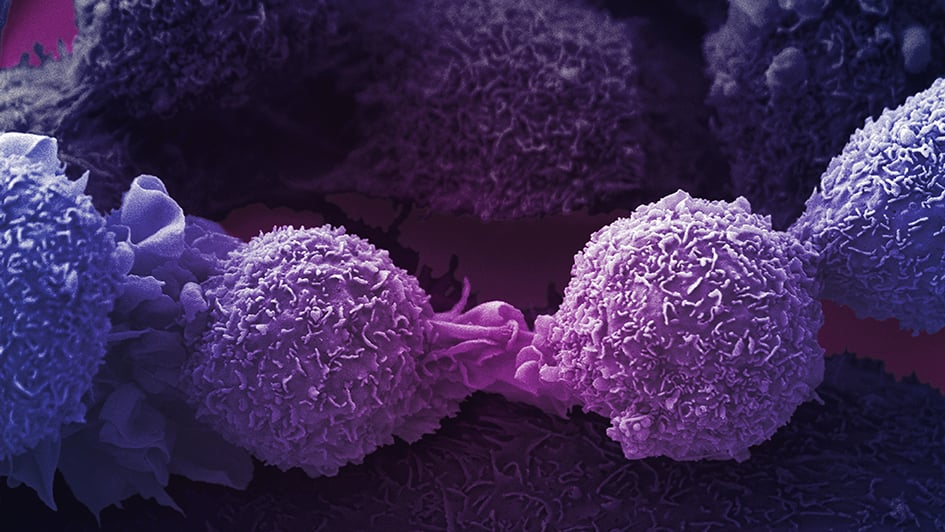In a recent research study, precision cancer drugs called PARP inhibitors are previously known to boost the immune system were found to spark a powerful immune response when used against cancer cells with weaknesses in DNA repair.
Image: Purple lung cancer cells. Credit: Anne Weston, Francis Crick Institute. Licence: CC BY-NC 4.0
"The findings of this study substantially change our understanding of how PARP inhibitors work. We now know that they not only kill tumors by damaging their DNA, but also by attracting immune cells to attack them -- acting as a sort of double-pronged attack. Immunotherapy is a genuinely brilliant cancer treatment but generally only for the 10 to 20 percent of people who respond to it. Finding the tumour is half of the battle in immunotherapy so by attracting the immune cells to the tumour, PARP inhibitors could enable the immunotherapy drug to target their attack,” says Chris Lord, Professor of Cancer Genomics at The Institute of Cancer Research in London.
Learn more:
Findings of the study were published in the Journal of Clinical Investigation and changes the current understanding on PARP inhibitors and their potential role in cancer treatments alongside immunotherapies. Particularly, certain PARP inhibitors, like olaparib, block a mechanism that cells use to repair DNA.
"Our study found that PARP inhibitors enlist immune cells to aid in the killing of cancer cells. This provides a rationale for using PARP inhibitors alongside immunotherapies to further stimulate the immune response to cancer cells with DNA repair defects and enhance the therapeutic benefit of the treatment. This will be evaluated in a clinical trial of lung, prostate and bladder cancers, which is starting later this year,” says study co-leader Dr. Sophie Postel-Vinay, Clinician Scientist and Medical Oncologist at Gustave Roussy, France, and The Institute of Cancer Research.
Source: The Institute of Cancer Research
-
APR 30, 2024Immuno-Oncology Virtual Event Series 2024
-
MAY 07, 20243rd International Biosecurity Virtual Symposium
-
JUN 06, 2024The Future of Scientific Conferencing
- See More


















































